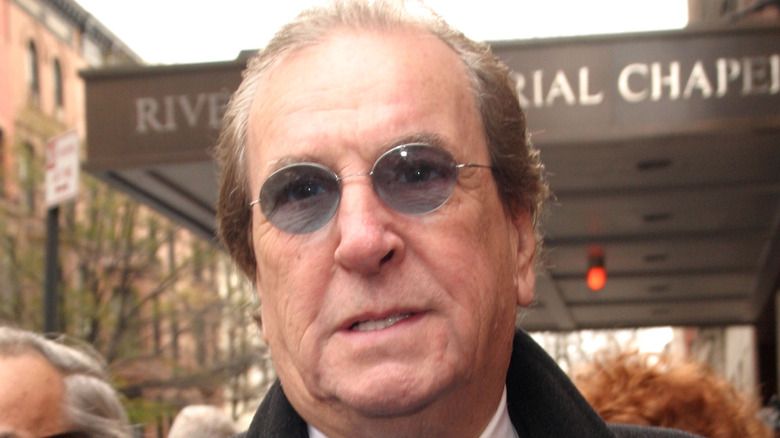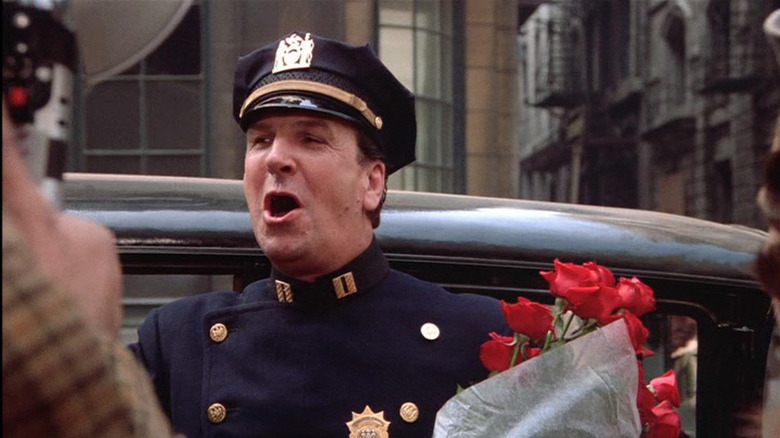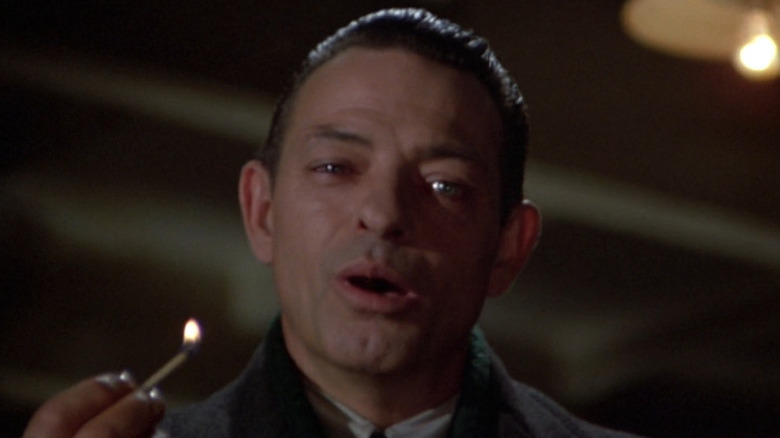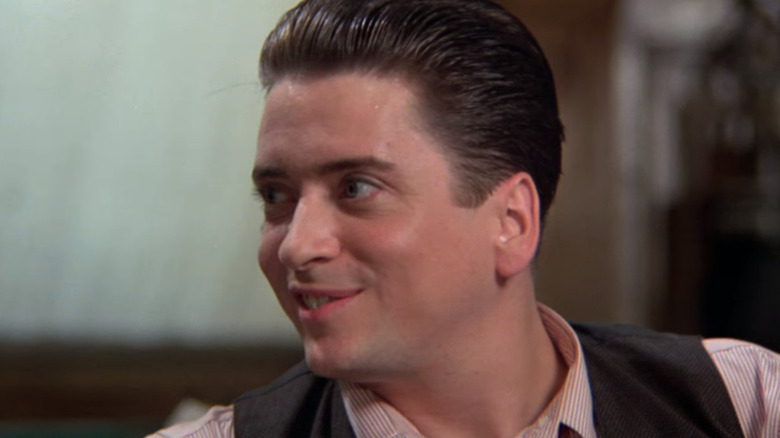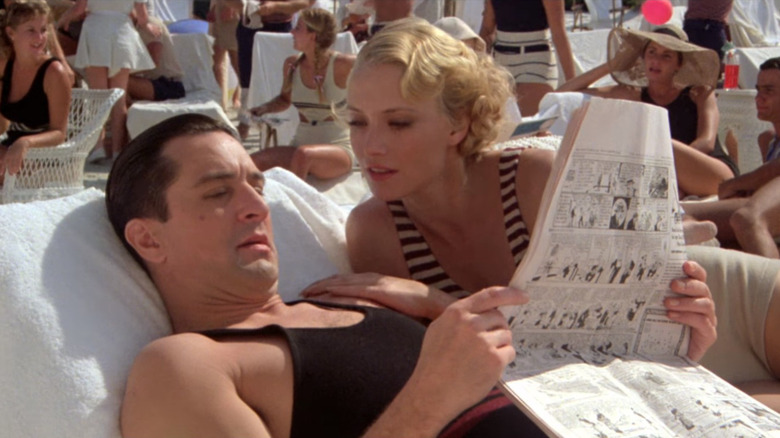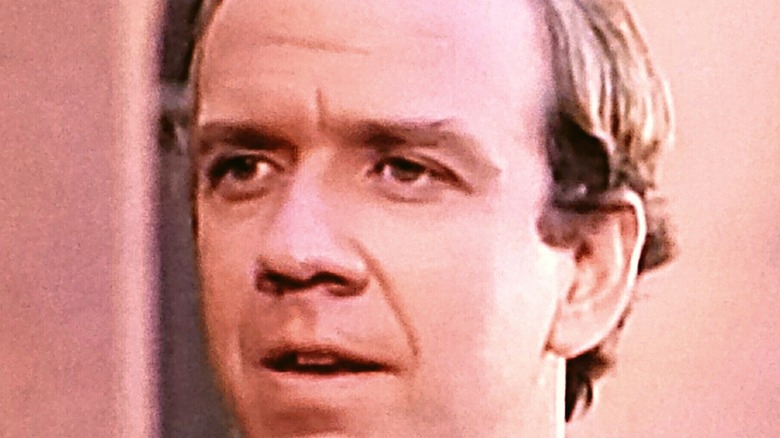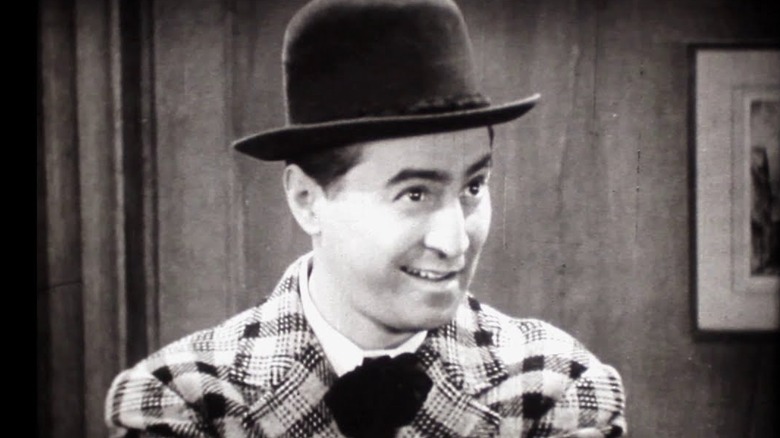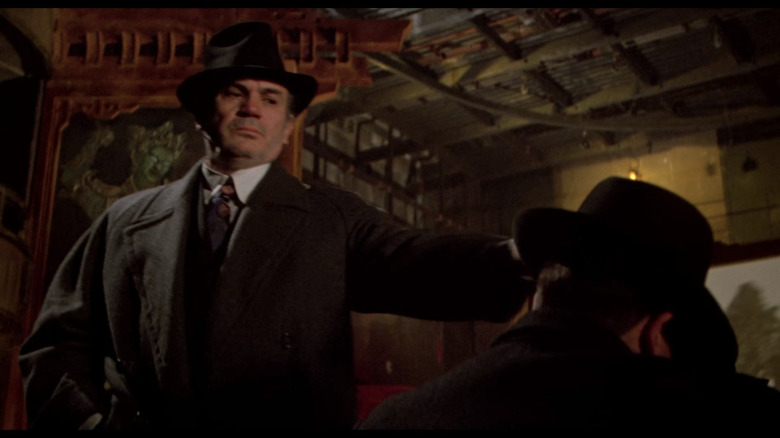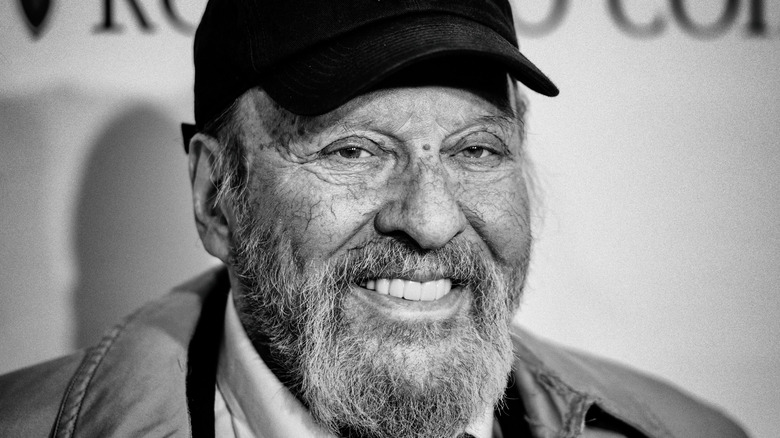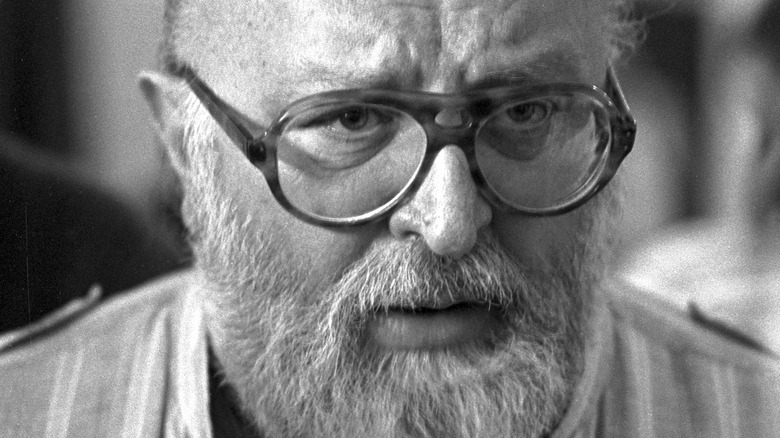Once Upon A Time In America Actors You May Not Know Passed Away
The final film directed by legendary filmmaker Sergio Leone, "Once Upon a Time in America" follows a group of Jewish American gangsters trying to establish themselves in the seedy underworld of New York City from the late 1910s to the early 1930s.
Unfortunately, Leone's vision for the film was overruled by producers, who dramatically shortened the film's original runtime from 229 to just 139 minutes. This edited version was a massive box office flop, raking in a mere $5.5 million on a budget of $30 million. It was only later, when the director's cut was released, that it received widespread acclaim, earning a handful of awards and prestigious nominations.
The differences in the two versions of the film were so dramatic, Gene Siskel named the three-hour version of "Once Upon a Time in America" as the best film of the year, while listing the studio-edited cut of the movie among the worst. Siskel's partner, Roger Ebert, similarly praised the original version of the film, giving it four stars and describing it as "an epic poem of violence and greed," labeling the theatrical cut a "travesty."
As well-received as the film has become, it's easy to forget the faces that make up the cast of "Once Upon a Time in America," especially when so many of them have died since the film's release nearly 40 years ago. Here are all the actors in "Once Upon a Time in America" you might not have known passed away.
Danny Aiello (Chief Aiello)
Danny Aiello broke into the film industry by the early 1970s, appearing as a baseball player in "Bang the Drum Slowly" at the age of 40. He was then cast as assassin Tony Rosato in "The Godfather Part II," ad-libbing the line "Michael Corleone says hello!" when performing a hit on a rival crime boss — a line that Francis Ford Coppola reportedly loved and decided to keep in the film.
After his appearance in "Once Upon a Time in America" as the corrupt police chief Vincent Aiello, he would go on to larger roles in the Woody Allen films "The Purple Rose of Cairo" and "Radio Days," as well as the romantic comedy "Moonstruck." In 1989, he starred as the ornery pizza parlor owner Sal in Spike Lee's critically acclaimed film "Do the Right Thing," for which Aiello received an Oscar nomination for best supporting actor.
The exposure Aiello received from "Do the Right Thing" led to the actor enjoying a long career in film and television. He appeared in several notable films, including "Jacob's Ladder," "Ruby," "Léon: The Professional," and the CBS miniseries, "The Last Don." On December 12, 2019, at 86 years old, the actor died in a New Jersey hospital. At his funeral, costar John Turturro and Spike Lee delivered eulogies, with Lee stating that, despite their "political differences," he and Aiello "truly loved each other."
Richard Bright (Chicken Joe)
Richard Bright worked as a character actor during the height of the New Hollywood era of film. Throughout his career, he specialized in playing characters with some sort of criminal past. Born in New York City in 1937, Bright began acting in small television roles by the time he was 18, making his cinematic debut in 1959's "Odds Against Tomorrow" at 22 years old.
Beginning in the 1970s, Bright began appearing in a larger variety of bit roles in movies directed by his friend, Sam Peckinpah, including "The Getaway," "Pat Garrett and Billy the Kid," and "Bring Me the Head of Alfredo Garcia." In 1971, he co-starred in "The Panic in Needle Park" as the brother of Al Pacino's character. In 1972, he was once again cast alongside Pacino as Al Neri, Michael Corleone's most trusted enforcer in "The Godfather" trilogy.
In "Once Upon a Time in America," Bright played another hitman, Chicken Joe. He had a varied film career, featured in everything from Westerns ("Rancho Deluxe") to thrillers ("Marathon Man") to anti-war musicals ("Hair"). By the 1990s, Bright began to focus on his television career, guest-starring on "Law & Order," "Oz," and "The Sopranos." Unfortunately, Bright's career was cut short in 2006 when the actor was struck and killed by a tour bus in Manhattan in a bizarre accident. He was 68.
James Hayden (Patsy)
James Hayden had perhaps the most tragic life stories of all the actors in "Once Upon a Time in America." Born in New York City in 1969, Hayden appeared in the role of Patsy, a close friend of Robert De Niro's character, Noodles. According to The New York Times, Hayden had a hard life as a child, living on the streets before enlisting in the US Army and serving as a medic in the Vietnam War. Returning to New York after his discharge in 1972, Hayden enrolled in the American Academy of Dramatic Arts, leading him down a successful road as an acclaimed professional actor.
Hayden delivered his first on-screen performance in the 1980 television film, "Marilyn: The Untold Story," and appeared in only a handful of films in the 1980s. The most noteworthy of these would end up being "Once Upon a Time in America," his breakout cinematic performance and sadly the last film the actor appeared in (the movie was released several months after Hayden's untimely death).
Hayden enjoyed immense success on stage, starring alongside Al Pacino in a Broadway production of David Mamet's "American Buffalo." Just as Hayden seemed on the cusp of stardom after appearing in "Once Upon a Time in America," the actor suffered a fatal heroin overdose on November 8, 1983, passing away at the age of 29.
Darlanne Fluegel (Eve)
Darlanne Fluegel began her career as a model in the mid-1970s but eventually switched to acting with her debut role in 1978's "Eyes of Laura Mars." Her big break came in Roger Corman's sci-fi B-movie, "Battle Beyond the Stars," in which she played the character Nanelia. In "Once Upon a Time in America," Fluegel was cast as Eve, Noodle's girlfriend after his relationship with Deborah falls apart. Fluegel's role in the film was a minor one, but it opened the door to a wide array of different character types for the actor to play, such as an undercover informant and heroin addict in 1985's "To Live and Die in L.A."
By the late 1980s, Fluegel began spending more time devoted to television, earning a starring role in the NBC crime series "Crime Story" from 1986 to 1987, a recurring role on "Wiseguy" from 1990 to 1991, and regular appearances on the final season of "Hunter" in 1991. By the mid-'90s, she retired from acting, occupying her time instead by running her own acting school and working as a professor of drama at the University of Central Florida. At 56, Fluegel was diagnosed with early-onset Alzheimer's, passing away eight years later on December 15, 2018.
Robert Harper (Sharkey)
Born on May 19, 1951, New Jersey native Robert Harper originally got his start performing on the stage, excelling in productions of Shakespeare, Ibsen, and Arthur Miller at the Washington D.C.-based Arena Stage. Harper's skill on the stage propelled him to Broadway by the late 1970s, landing him starring roles in a revival of "Once in a Lifetime" and Arthur Miller's "The American Clock" during the play's original production in 1980.
Shifting away from the stage, Harper began exploring a career in film and television. In 1984, he was cast in his most significant role as Sharkey in "Once Upon a Time in America," and was later featured in minor roles in the anthology film, "Creepshow," Michael Mann's "The Insider," and Woody Allen's "Deconstructing Harry." He also guest-starred in numerous TV shows, including "Roseanne," "Matlock," and the hit sci-fi series "Star Trek: The Next Generation."
Harper's final performances came in 2006, with guest-starring appearances on "Gilmore Girls" and ABC's short-lived "Commander and Chief." On January 23, 2020, the 68-year-old Harper died of cancer in Rotterdam, Netherlands.
Joey Faye (Adorable Old Man)
One of the veteran actors to work on "Once Upon a Time in America" was Joey Faye, an accomplished vaudevillian whose career began in the 1930s. Born in New York City in 1909, Faye made such a distinguished name for himself in the entertainment industry that he accompanied Marlene Dietrich as part of an acting troupe entertaining Allied soldiers in Europe and Africa during World War II.
Upon his return to the United States at the end of the war, Faye once again took to the stage, appearing in key roles in the Broadway musicals "High Button Shoes" and "Top Banana." In 1948, he made his film debut in the film noir "Close-Up," appearing in dozens of films in the decades that followed. During that time, Faye also remained active on the stage, starring in 17 Broadway shows from the 1930s until the time of his death in the 1990s. His final film role came with "Once Upon a Time in America," which featured Faye as "Adorable Old Man."
On April 26, 1997, Faye suffered a fatal heart attack in Englewood, New Jersey. Today, some of the most famous recurring gags in vaudeville and physical comedy have been attributed to Faye, among them "Floogle Street" and "Slowly I Turned," later popularized by accomplished comedians and groups like Abbott and Costello, the Three Stooges, and Lucille Ball.
Mario Brega (Mandy)
Fans of Sergio Leone might be able to spot a familiar face in the form of Mario Brega, a veteran Italian actor who briefly appeared in "Once Upon a Time in America" as Mandy, one of the three gangsters searching for Noodles. Like all of Brega's characters in Leone's films, his appearance in "Once Upon a Time in America" made perfect use of the actor's imposing figure.
Born in Rome on March 25, 1923, Brega was a butcher before he decided to venture into acting, where his heavyset physique saw him cast in numerous Italian films in the late 1950s. Brega appeared in several comedy films before finding himself in a small villainous role in Sergio Leone's "A Fistful of Dollars" in 1964, kicking off a collaborative partnership that would last two decades. In 1965, Brega would have a larger role in "For a Few Dollars More," and "The Good, the Bad and the Ugly," appearing as the stocky right-hand man to the main antagonist.
For the next few years, Brega would star in several Spaghetti Westerns, working with Sergio Corbucci and Lee Van Cleef. In the 1970s, Brega shed most of his weight and began appearing in more comedic films, although he eventually returned to more menacing characters in 1984 after reuniting with Leone for "Once Upon a Time in America." Brega continued acting into the '90s until his death on July 23, 1994.
Chuck Low (Fat Moe)
Like Mario Brega, actor Chuck Low was featured in a small role in "Once Upon a Time in America," playing Fat Moe. Born in New York City on July 21, 1928, Low was one of the few cast members in the film who wasn't a professional actor. Graduating from Norwich Military Academy in 1950 with a degree in electrical engineering, he served as a major in the US Army for four years.
After the military, he worked in his family business, M. Low Inc., manufacturing marine instruments. He also became a licensed real estate broker, developing multiple loft-style apartment buildings in Tribeca, New York. One of his tenants was Robert De Niro, who ended up being a close friend of Low, encouraging him to get into acting in the first place.
With help from De Niro, Low made his acting debut in Martin Scorsese's 1978 film, "The King of Comedy," before appearing in "Once Upon a Time in America." In 1990, Low received his biggest role in "Goodfellas" as Morrie, a criminal associate of De Niro's character, Jimmy Conway. Low would go on to perform in several other movies and TV shows, including as Shlomo Teittleman in an early episode of "The Sopranos." On September 18, 2017, Low died in his sleep in a New Jersey nursing home.
Sergio Leone
One of the most popular and influential directors of all time, Sergio Leone helmed "Once Upon a Time in America." Born on January 9, 1929, in Rome, Leone worked on several lesser-known Italian films from the late 1940s to the early 1960s, including his directorial debut, the sword and sandals epic "The Colossus of Rhodes."
In 1964, Leone set out to create a low-budget Western filmed in the Italian countryside, starring then fledgling TV actor Clint Eastwood. The resulting film, "A Fistful of Dollars," sparked a new era in the Western genre, creating what is known as the Spaghetti Western — a grittier, postmodern version of the traditional Western where many of the genre's conventions were shed in favor of more stylized films featuring morally ambiguous characters. It propelled Clint Eastwood into stardom, providing the actor with one of his most iconic roles.
His work was not limited to just the Western genre, however, as "Once Upon a Time in America" proves. The gangster epic marked Leone's final film, with the director falling victim to a fatal heart attack at the age of 60 on April 30, 1989, while preparing for his next film, "Leningrad: The 900 Days."
